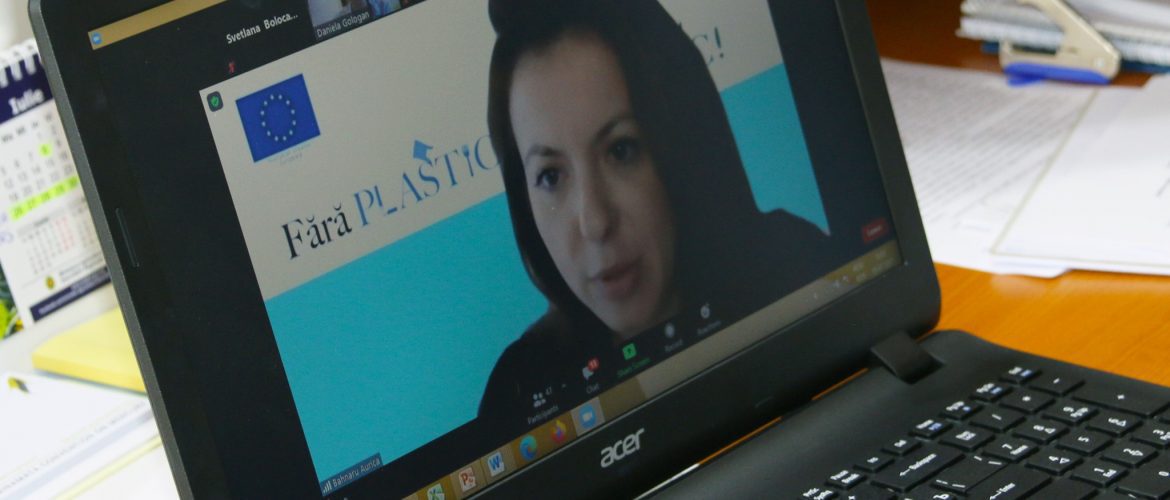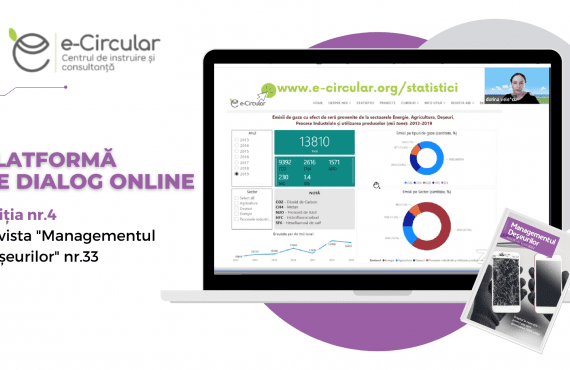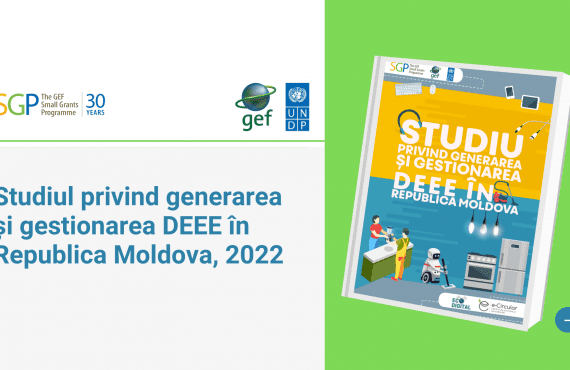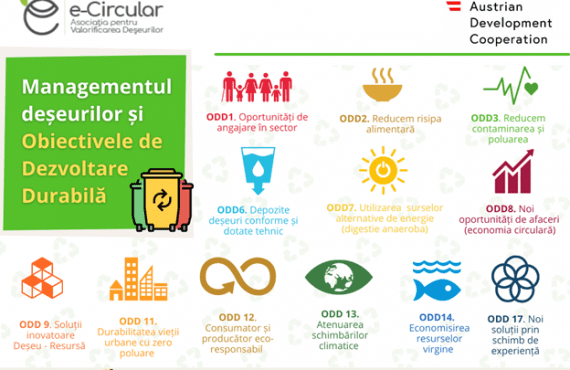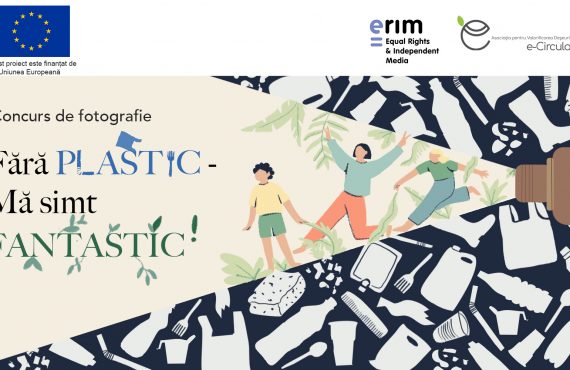On Monday, July 5, 2021, the AO Association for Waste Recovery officially launched itat national level the campaign – "Without Plastic I feel Fantastic", thus joining the global campaign #PlasticFreeJuly2021, attended by more than 300 million people worldwide. The event was organized with the financial support of the European Union within the Project "Development of the capacities of civil society organizations" which is a regional project implemented by ERIM (previously IREX Europe).
During the launch event, representatives from the Ministry of Agriculture, Regional Development and Environment, the Environment Agency, economic agents, NGOs discussed the current situation regarding plastic waste management, they came up with examples of sustainable businesses. "In 2019, 627.2 thousand tons of waste were generated, of which 534.4 tons are hazardous waste. The largest part is municipal waste - 528.2 thousand tons, followed by packaging waste - 39.4 thousand tons, waste from wastewater treatment plants - 25.2 thousand tons, waste from the agro-industrial sector - 16.9 thousand tons and in smaller quantities from other activities", show the data presented by the economic agents through the automated information system "Waste Management" (SIA MD). "Approximately 84% of the total waste generated in the Republic of Moldova in 2019 represents "municipal waste" - household waste generated, mainly, by households, followed by industrial enterprises and public and social institutions, such as schools, kindergartens and hospitals. Only 7.2% of the generated municipal waste is stored separately," said Constantin Croitori, head of the Waste Laboratory, Environment Agency.
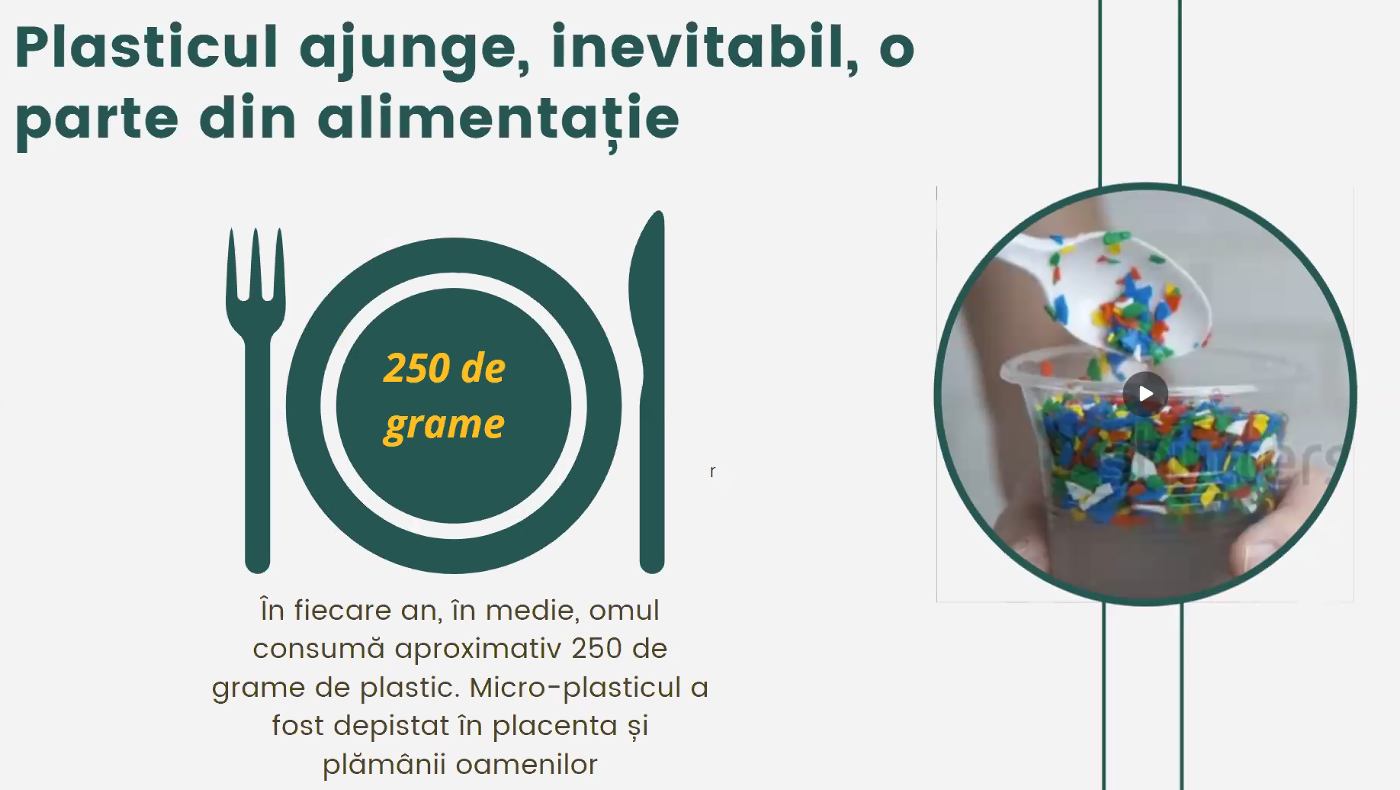
"Plastic has direct effects on human health, due to the dioxins obtained by incinerating plastic: at low levels it has cardiovascular effects, diabetes and changes the composition of the blood; accumulates in the liver and fat, alters cell function and affects hormonal activity; children by consuming mother's milk containing dioxins can have neurological problems.
However, there are methods to minimize the influence of plastic on human health: opt for products not packaged in plastic; avoid purchasing plastic products that stay in the sun or heat; use reused bags; inform children and students about the importance of removing this material; be aware of the harms of plastic before purchasing; recycle, reuse, reduce!", says Andreea Ocrain, editor of "Managementul Deşeuroir" magazine.
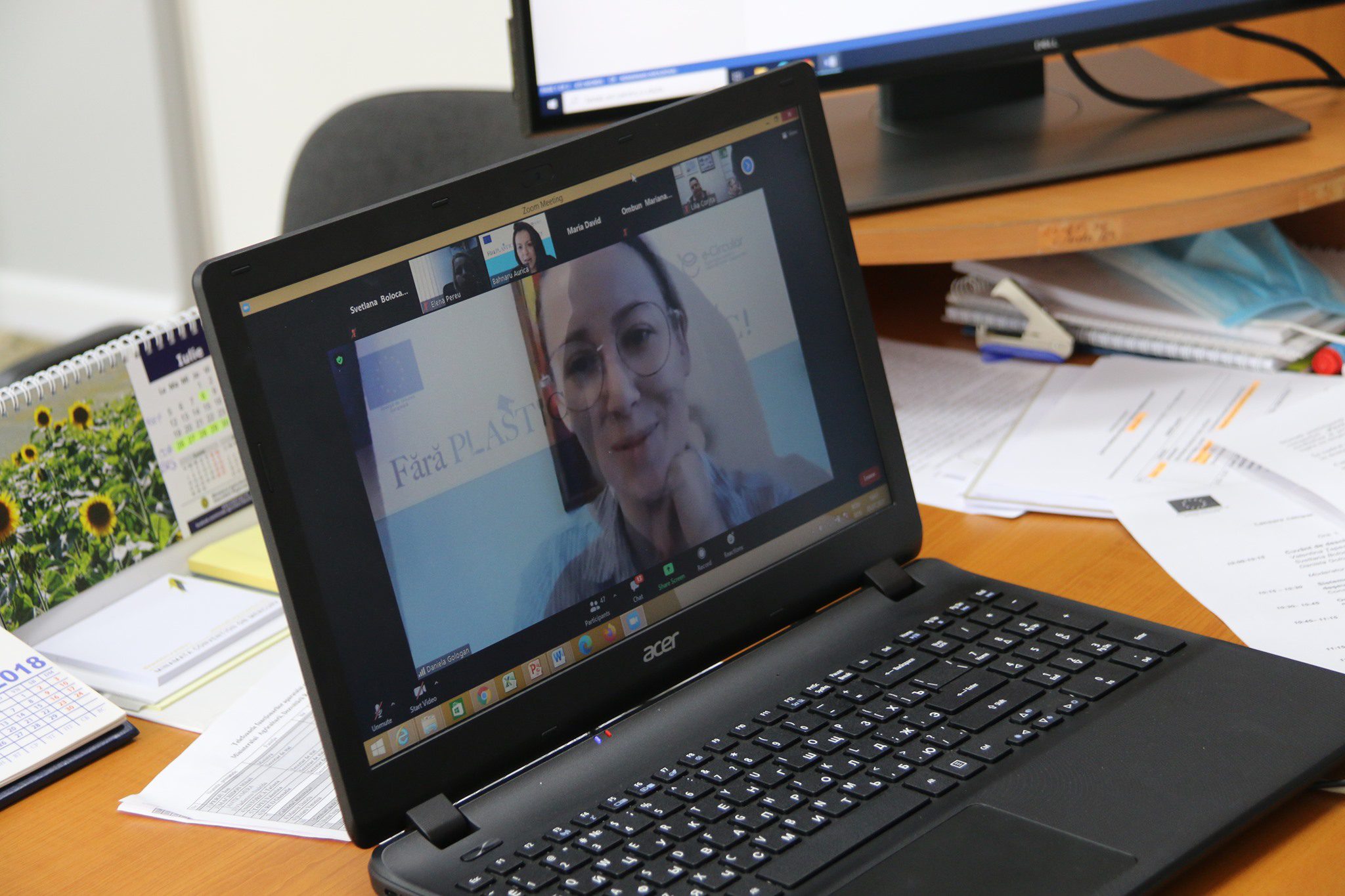
Two organizations from the Republic of Moldova have demonstrated that there are alternative solutions to the consumption of plastic and that it has value when it is recycled. Thus, the organization Wayris produces edible cups, thus contributing to the reduction of the use of single-use tableware, and TEP- Tinerii for EcoPlastic, which makes various plastic objects.
"We recycle two types of plastic, type 2 and 5, because they are the easiest to recycle, they are less capricious, other types of plastic remove different toxins, and type 2 and 5 are the safest. These 2 types of plastic are specific to lids, containers, containers from household chemicals. As a result of melting the plastic, we produce different objects - soap dishes, fruit bowls, earrings, lampshades, etc. The main goal is to show people that plastic is not garbage, but is a precious material", says Elena Tacu, member of the TEP team - Young people for EcoPlastic.

"In addition to the legal framework that the ministry is developing, it is important that the population and other decision-makers get involved in the dimensions related to this sector. It is important to have the support of NGOs to mediate and collaborate with the population, to form a platform for discussions, and subsequently outline those actions that are necessary to be carried out. Respectively, let's understand correctly what plastic waste means, what is the impact and what contribution we must make to reduce the generation of this waste", mentions Svetlana Bolocan, Ministry of Agriculture, Regional Development and Environment.
"We have been carrying the idea of this campaign for several years, since the "Plastic Free July" campaign was launched globally. In 2017, we did some information and awareness activities, later, we had other online information dissemination activities. This year, with the support of European Union funding, we managed to launch this short-term campaign, but it is a very intense one", said Aurelia Bahnaru, president of the Association for Waste Recovery.
The campaign will promote, through creation, the practices of reuse, recycling and reduction of plastic waste among the population of all ages in the Republic of Moldova.
The Association for Waste Recovery is a non-governmental organization established in 2010, with the aim of identifying, mediating and implementing in the Republic of Moldova an effective waste recovery system. The association is also the publisher of the Magazine "Managementul Deșeurilor", the only profile magazine at the national level, which offers the necessary informational support to APL representatives, sanitation operators and economic agents in the Republic of Moldova.
You can find the presentations from the event below:
Source: Ecopress

